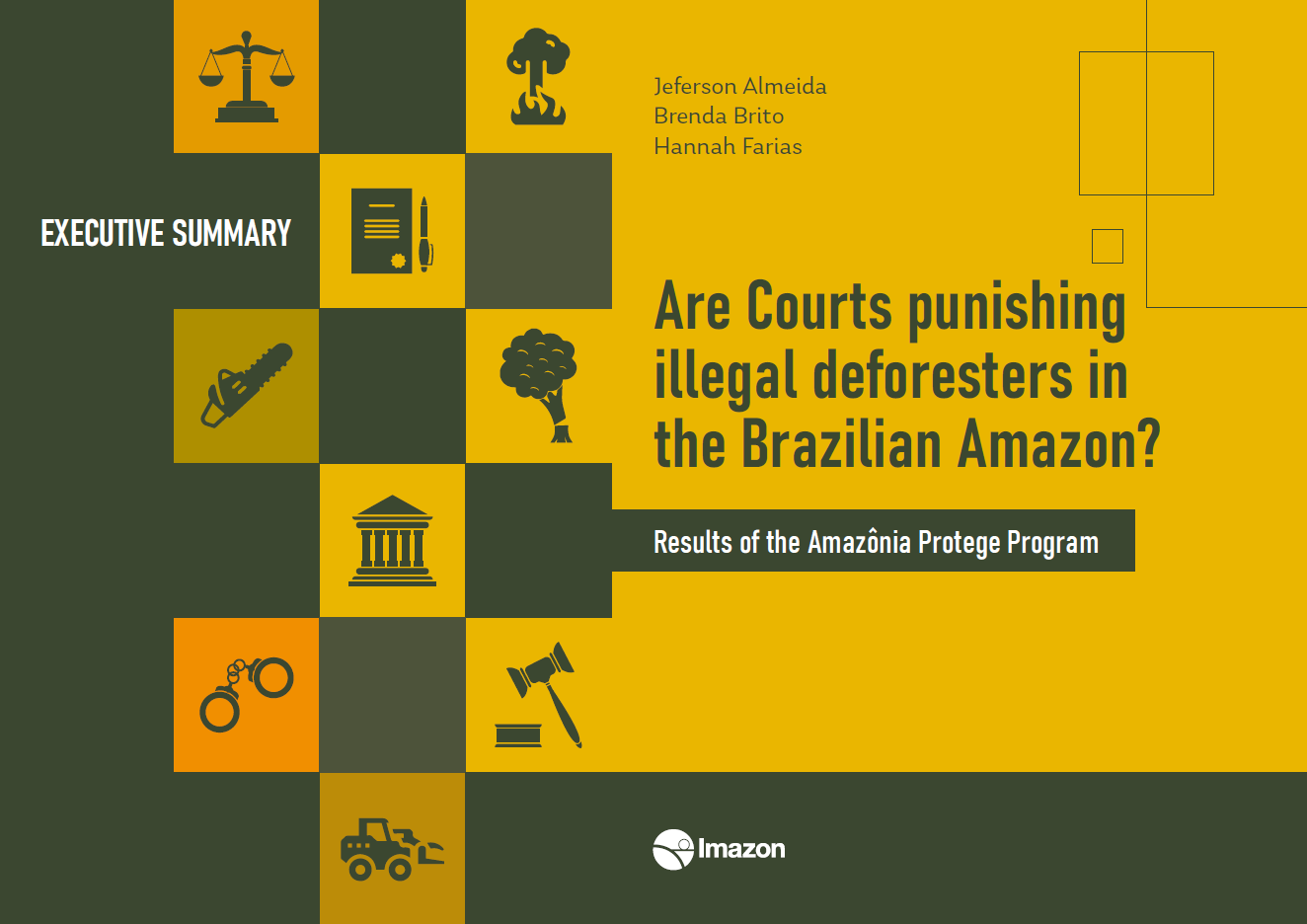 Almeida, Jeferson; Brito, Brenda; e Farias, Hannah. EXECUTIVE SUMMARY: Are Courts punishing illegal deforesters in the Brazilian Amazon? – Results of the Amazônia Protege Program. Belém: Imazon, 2022.
Almeida, Jeferson; Brito, Brenda; e Farias, Hannah. EXECUTIVE SUMMARY: Are Courts punishing illegal deforesters in the Brazilian Amazon? – Results of the Amazônia Protege Program. Belém: Imazon, 2022.
Executive Summary
In 2017, the Federal Public Prosecution Service (MPF) launched the Amazônia Protege program (The Amazon Protects) to hold illegal deforesters liable for environmental damages through lawsuits. By 2020, the MPF had brought 3,561 public civil suits (ACPs, in Portuguese) in the nine states of the Brazilian Amazon, covering more than 231,456 hectares deforested and compensation claims that total BRL 3.7 billion.
One of the innovations of this program is the confirmation of deforestation and the deforesters identities by crossing two pieces of information: i) satellite images that indicate the environmental damage, and ii) public databases naming those responsible for the deforested area. First, the MPF selects deforestation events above 60 hectares from the Prodes system at the National Institute for Space Research (Inpe). Those data are overlayed on maps of properties registered in the Rural Environmental Registry (CAR) or the Sigef, a system from the National Institute for Agrarian Reform (Incra). The information on land occupation makes it possible to link a CPF (individual tax identification number) or CNPJ (corporate tax registry number) to deforestation.
One of the innovations of this program is the confirmation of deforestation and the deforesters identities by crossing two pieces of information: i) satellite images that indicate the environmental damage, and ii) public databases naming those responsible for the deforested area. First, the MPF selects deforestation events above 60 hectares from the Prodes system at the National Institute for Space Research (Inpe). Those data are overlayed on maps of properties registered in the Rural Environmental Registry (CAR) or the Sigef, a system from the National Institute for Agrarian Reform (Incra). The information on land occupation makes it possible to link a CPF (individual tax identification number) or CNPJ (corporate tax registry number) to deforestation.
This study is the first survey of the progress of the lawsuits under Amazônia Protege program, with the main objectives of: i) identifying if the Court system in Brazil is accepting the deforestation evidence obtained remotely and the unknown defendant’s legal strategy; ii) assess the main legal arguments judges are using to support their verdicts; and iii) propose recommendations for increasing the environmental liability for illegal deforestation in the courts.
Tap here to read the executive summary
